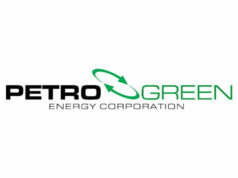Laban Konsyumer files competition complaint vs oil companies, DoE
A CONSUMER RIGHTS advocacy group on Thursday filed a complaint with the Philippine Competition Commission (PCC) alleging petroleum price fixing, cartel, and collusion among 15 oil companies and the Department of Energy (DoE).
Laban Konsyumer Inc. (LKI) president Vic Dimagiba filed a complaint against the oil companies for allegedly entering into pricing agreements that substantially prevent competition in retail and petroleum products.
“How come even the biggest companies and small companies adjust [prices] by the same amount?” he said in a phone interview Friday.
The group cited the Philippine Competition Law or Republic Act 10667, which prohibits pricing agreements that restrict competition.
LKI also cited Section 11 of the Downstream Oil Industry Deregulation Law or Republic Act 8479, which prohibits cartels and monopolies in the industry.
The complaint was filed against Chevron Philippines, Inc., Petron Corp., PTT Philippines Corp., Pilipinas Shell Petroleum Corp., Total Philippines Corp., SeaOil Philippines, Inc., Phoenix Petroleum Philippines, Inc. Unioil Petroleum Philippines, Inc., Jetti Petroleum Inc., Eastern Petroleum Corp., City Oil Philippines, Inc., Filpride Energy Corp., Clean Fuels Philippines, TWA Inc., and Petro Gazz Ventures Corp.
Mr. Dimagiba also filed a complaint against the Department of Energy for allegedly abetting and facilitating price fixing, cartel, and collusion by using a pricing formula that prevents market competition.
Mr. Dimagiba said the pricing formula, which is posted on the DoE website, is based on the weekly average of the Mean of Platt’s Singapore price assessment published by Platts. Platts is a global energy, petrochemicals, metals, and agriculture information provider.
According to the complaint, the formula “does not consider costs beyond importation” such as storage, handling, distribution, retailing and costs associated with the biofuels program.
“When you import crude oil, you cannot apply the Mean of Platt — sigurado (certainly it will be) distorted,” he said.
In his complaint, Mr. Dimagiba said he did not find the difference in retail pricing between oil refiners and finished product importers, which have different inventory requirements.
He said the price setting computation and documents detailing the reasons behind individual price adjustments does not consider the international content, taxes and duties, biofuel cost, and oil company take components.
In a statement on Friday, Mr. Dimagiba said the formula is restricting fair and competitive pricing of the products and “the parties agreed amongst themselves to adjust prices of the same amount and effectivity date and without relating price setting as to whether the oil company is an oil refiners or wholly importer of finished products, and other costs.”
He said in the interview that he is asking the PCC to investigate and find evidence of agreements among the companies.
“We hope that the Philippine Competition Commission acts swiftly on this, so as to punish those responsible for doing collusion and price fixing. If quick action is taken against these violators, then we may also be able to prevent future collusion and price fixing, and end up protecting consumer welfare, which is of utmost priority for our consumer group.”
In the complaint, Mr. Dimagiba said that he has “exhausted administrative remedy” with DoE, but that no actions have been taken as of date.
The DoE in October pushed for the possible revision of the oil deregulation law, or Republic Act 8479, to give the department more power to regulate and unbundle petroleum product prices. — Jenina P. Ibañez



